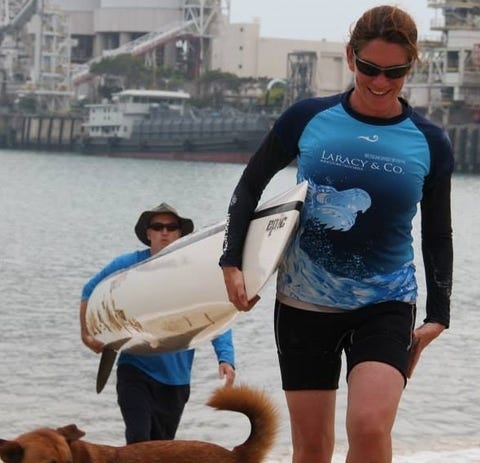Where reach exceeds the map
Small places are not backdrops; they shape change. Leaving Hong Kong’s rhythm to return to New Brunswick wasn’t just a move – it was a reminder that transformation takes root where we least expect.
It was a moment of casual flattery that derailed my career.
I was ambling up a steep hillside on one of the small Hong Kong islands I called home, chatting with friends about a gratifyingly successful dragonboat event I had organized in the community, when my friends said the terrible words: “You are so good at managing these events, you could do this sort of thing for a living.”.
“A living,” I thought. “A life made by monetizing my hobbies. Yessssss.”
I had swung from vine to vine in Hong Kong’s employment jungle: from business reporter to magazine editor, corporate PR back to journalism, and I was now comfortably perched on a well-paid branch of research management in equities and derivatives at a major international bank.
I was comfortable, financially safe – despite two global economic upheavals – and destined for promotion. The work was horribly boring.
I had been chewing over the idea of buying an available kayaking business in New Brunswick for a while. I wasn’t a tourism expert, but I’d spent a decade racing, coaching and organizing events for Dragonboat, Canoe and Surfski paddlers in Hong Kong. Why not shift my passion for sports paddling to guided kayak tours?
I could fly to Canada in the summer to run the business and return to Asia for the rest of the year. I imagined virtuous summers sharing the marvels of New Brunswick’s waterways with appreciative guests before I zipped back to the sophisticated buzz of Hong Kong each autumn. It would be a “lifestyle” choice, offering the best of two worlds.
It sounded great on paper, but planting my feet in two countries offered more downsides than perks. I became a part-time friend and colleague in two countries, and my spouse was increasingly aggravated by my long absences. The annual divide made me lonely, and I fretted that my absence in either place made me seem personally and professionally unreliable.
Meanwhile, my adoptive city was fragmenting. Once independent-minded Hong Kongers were being overwhelmed by the politics of the CCP as China tightened its grip on the former British Colony. My close friends were moving on to greener pastures, and I was closing in on 20 years of expat life.
In 2018, me and my household of two rescue mutts and one British husband, moved to New Brunswick.
The first winter was bleak. I’d worked as a journalist in Saint John before I’d moved to Asia, and I had a fondness for the port city’s eclectic architecture, industrial roots, and the light that saturated the streets with a golden glow. We’d moved into a historic home and were enthusiastic about our sweeping views of the Bay, but I had forgotten the bite of Saint John’s winter wind and how reliant we would be on cars.
I came to view our lovely house as a monument to unnecessary cleaning (Empire architecture was designed for empires and a full staff to serve them) and began seeking a place to live rather than inhabit.
Then we found the farm. It had acres of forest and fields set along a winding river, a cozy farmhouse and a sturdy barn. A covered bridge is the entry point to our property, and the only thing between the bridge and us is a volunteer-run community skating rink.
On Wednesday nights in summer, masses of folk park their F-150s next to the rink to boisterously pitch horseshoes. It looks like every pick-up in Southern NB has convened, and the clang of steel shoes hitting posts carries over the fields to my front porch.
The forest rising behind us is rich with hardwoods and diverse evergreens. The moss, lichen and mushrooms; the brambles, berries and apple trees; the bears, deer, rabbits, coyotes, foxes and porcupines appear to be in healthy equilibrium.
So, in this iteration of my strange adulthood, I am a novice (idiot) farmer: trying to coax vegetables from the soil, place honeybees out of easy reach of black bears, arrange for a solar array to replace provincial power and get to know my neighbours. I also mean to “monetize” this new passion – whatever that looks like.
We had planned to build cabins on the property to rent to winter skiers and summer tourists, or to create an experiential hobby farm to appeal to visiting guests. Alpacas, goats, tiny donkeys, chickens: nothing is off the table, and we are blinded by the endless opportunities available to us.
For now, we are learning the land and figuring out how to make it both our work and our home. The bees must be paid for, home efficiency tests are due this week, I have hundreds of seeds to cold start before spring planting, and those kayak tours begin again in June.







